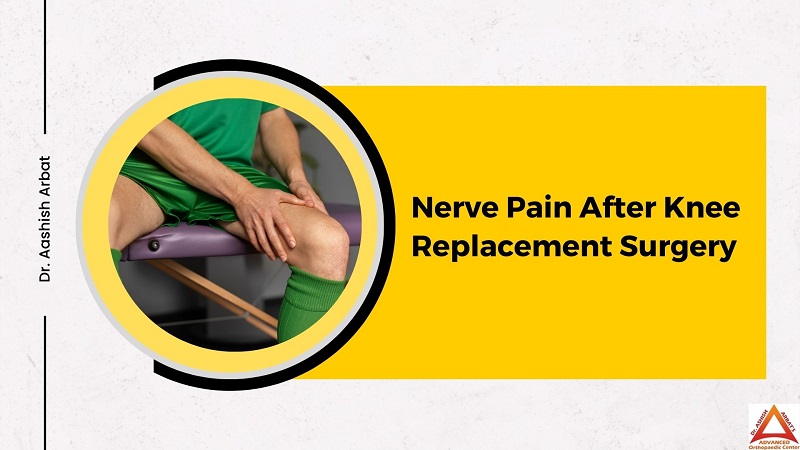
Knee replacement surgery is becoming an increasingly popular technique. The technique has advanced through the years and is a common treatment for knee osteoarthritis (OA). Unfortunately, many people still face nerve pain even after a knee replacement. If you are wondering how to manage nerve pain after knee replacement surgery; don’t panic.
This blog explains nerve pain, detects its risk factors, and ways to manage it after knee replacement surgery. Below, we will mention the symptoms and ideas to help lessen nerve pain after knee replacement surgery.
Contents
What Are the Symptoms of Nerve Damage After Total Knee Replacement?
Nerve damage after knee replacement can cause impassiveness, itching, burning, pain, dimness, or sensitivity in the thigh, knee, or leg. At times the patient may experience difficulty going up and down stairs, joint unsteadiness, toughness, or misalignment of the implant. These could be indications of knee replacement failure and should be reported to an Orthopedic doctor immediately.
There are ways to handle nerve pain after knee replacement surgery.
What Helps Nerve Pain After Knee Replacement?
Understanding the possible solutions:
Medications
Gabapentin (or Neurontin) is very helpful in preventing nerve jolts, zingers, and sharp pains associated with nerves.
Massage
Massage is a great way to warm up tight muscles, break up adhesions/scar tissue and improve blood flow to an injured area.
If you have any symptoms of a blood clot, consult your doctor immediately.
Heat/Ice
The application of moist heat packs or ice packs can lessen the sensitivity of nerve endings. Ice reduces the nerve indications causing decreased pain sensations. Heat increases blood flow to the area; this can help injuries heal quicker.
Physical Therapy
Physical therapy can give you relief post-surgery by strengthening muscles, increasing blood flow, reducing anxiety and so on.
Other treatments
- Radiofrequency ablation:
- Knee scope
- Revision surgery
- Peripheral nerve stimulation
Wondering how long nerve pain lasts after total knee replacement? Keep in mind that everyone’s experience post-operation is unique.
How Long Does Nerve Pain Last After Total Knee Replacement?
Research studies say that around 13-14% of individuals who underwent this process, precisely experienced continuing nerve pain for 6 months after surgery. Well, general pain may last for weeks too. Swelling, however, generally lasts for 2-3 weeks.
Is the question how common is nerve impairment post knee replacement bothering you?
How Common Is Nerve Damage After Knee Replacement?
Dr. Aashish Arbat, a reputed Knee Replacement Doctor in Pune mentions that nerve pain is common post knee replacement surgery. You just need to understand why it happens, and how it typically evolves and resolves over time.
A few nerves generally get more injured post this surgery.
Which Nerve is Most Commonly Injured After Total Knee Arthroplasty
After total knee arthroplasty (TKA), the common peroneal nerve palsy (CPNP) is the most possible nerve injury, with an incidence rate of 0.12%-0.53%.
Nerve Pain 6 Months After Knee Replacement
Nearly 13-14% of individuals with knee OA, who underwent knee replacement surgery, experienced persisting nerve pain even 6 months after surgery.
What Helps Sciatica Pain After Knee Replacement?
- Localized treatments
- Peripheral nerve block
- Medications
- Physical therapy
Femoral Nerve Damage After Knee Surgery
A Femoral nerve block (FNB) is a single injection or as a continuous infusion of a numbing medication in the groin area that blocks sensation to the knee to lessen pain after surgery.
For any surgery, finding the best surgeon is important.
Choosing the Best Nerve Pain After Knee Replacement Surgery
Selecting the right knee replacement surgeon is crucial to your chances of making a smooth and effective recovery.
Wrapping up
Think you need a knee replacement? Call (+91 9594912719) to schedule an appointment with Dr. Aashish Arbat, an internationally acclaimed orthopedic doctor in Pune. Drop in at our clinic for detailed information on nerve pain after knee replacement surgery.

